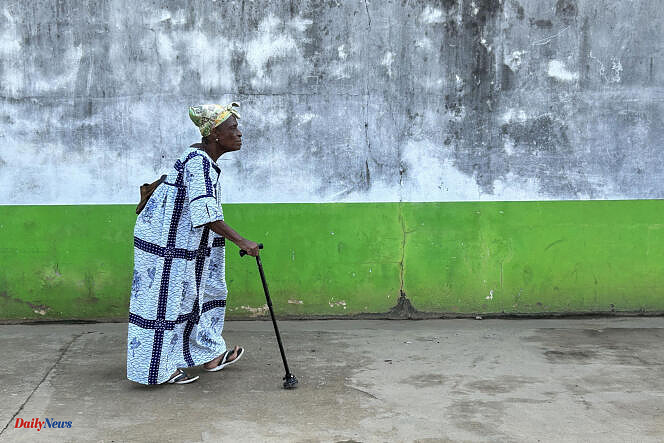The first retirement home in Ivory Coast opened its doors in September. But, at the end of November, the private establishment still had no residents. Such an initiative arouses reluctance in a country where support for the elderly is traditionally done within families.
“Several interested people called me, sometimes elderly people themselves,” assures Nina Zougo, founder of this pioneering establishment. But no one has yet taken the plunge to stay there. Located on the outskirts of Abidjan, in Bingerville, this renovated, spacious house is equipped with seven adapted beds and staff trained in geriatrics. “It must be said that in Ivory Coast,” says Arlette Monney, one of his associates, “the idea of a retirement home is not yet adopted by everyone. »
So who takes care of the elderly? “In 80% of cases, they are family members”, in others “it’s the neighborhood”, replies the Ivorian sociologist specializing in aging, Arnaud Dayoro. A “mechanical” solidarity, according to the academic, in a country where, as elsewhere in Africa, respect for elders is a fundamental basis of social relations.
“I’m going to die quickly.”
In Attécoubé, a working-class neighborhood in the west of Abidjan, two retired roommates, sitting in the shade of a tree, discuss their old age in their sunny courtyard. “My children have to take care of me because they were born to me,” says Atta Kouamé, 79. For her, sending her to a retirement home would be “abandoning” her, “throwing” her away. Her sister-in-law, Elisabeth Qwansah, 78, agrees. “Over there”, in a retirement home, “I will die quickly not being surrounded by my family”, she thinks.
Atta Kouamé's daughter, Emma Koffi, has been caring for the two elderly ladies on a daily basis for eight months. A “tiring” role that prevents her from traveling and sometimes working: “I deprive myself of a lot of things,” confides this single mother.
In Ivory Coast, a “carer” – a person who assists a loved one who is losing their independence – “is the youngest who has not completed her studies, the eldest in the family who has no money or husband,” says the retirement home’s founder, Nina Zougo. “They no longer have a life. Often people pray for the person to die, because they are tired,” she continues. This can result in “forms of mistreatment” towards the elderly, adds sociologist Arnaud Dayoro.
But cohabitation works. Henriette Bian, 74, is tired and has “no more physical strength”. She lives with one of her daughters and receives regular visits from members of her family. “With the grandchildren, we play, we have fun,” she confides. They bring her “joy” and she teaches them words in Yacouba, the language of her ethnic group. Victoire Gondo, one of his daughters who helps him regularly, is “happy” to have “become closer” to her mother and takes advantage of her advice to “move forward in life”.
“Human way of living”
It is this link between generations that motivated the choice of Albert Kipré, born in Ivory Coast 84 years ago. After nearly half a century in France, he chose to return to his native country five months ago to avoid the retirement home in France where some of his children live. “It would be horrible to die abandoned there. In France, I had a family without having any, because life there does not allow me to live with them. Here we are as a family: our way of living is human, it is our wealth,” he believes.
For Nina Zougo, however, there is no question of isolating the future residents of her retirement home. Aware of the dysfunctions of Western establishments, she wants to create a lively living space, where sentimental and sexual relationships also have their place.
The government launched a program in 2021 to provide financial and health assistance to some 200,000 elderly people, or a third of the country's over-65s, who represent only 2% of the population, according to the World Bank. In Ivory Coast, life expectancy is 57 years for men and 60 years for women. This retirement home is only accessible to a wealthy minority of the Ivorian population. A one-day stay costs 35,000 CFA francs (53 euros), or half the minimum monthly salary.












